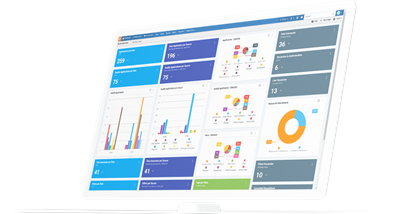The Importance of Recruitment Data
From job postings to candidate interviews, the recruitment process can be filled with surprises for both employers and potential hires. To ensure that your organisation attracts and retains top talent, it is essential to measure and analyse each step involved in the hiring process. Recruitment data offers a comprehensive view into how your hiring processes are faring - allowing you to identify areas for improvement and gain actionable insights about your candidates’ journey through each stage of the recruitment process. In this blog post, we'll explore the importance of recruitment data and look at a couple of not so commonly used measures.
for both employers and potential hires. To ensure that your organisation attracts and retains top talent, it is essential to measure and analyse each step involved in the hiring process. Recruitment data offers a comprehensive view into how your hiring processes are faring - allowing you to identify areas for improvement and gain actionable insights about your candidates’ journey through each stage of the recruitment process. In this blog post, we'll explore the importance of recruitment data and look at a couple of not so commonly used measures.
Understanding Recruitment Funnel Throughput
Recruitment Funnel Throughput looks at each stage in your recruitment workflow to determine the volume of candidates progressing. This enables you to get a good idea of the approximate number of candidates you will need to source in order to progress a sufficient number through the process to make a hire. Analysing your Funnel for your entire recruitment workflow will only give you a very high-level view - where the funnel is increasingly important is when you start to assess your funnel for specific positions, locations, seniority levels and so on.

This Free Recruitment Metrics Cookbook is full of hearty sums, dainty calculations and some
delightful divisions to help you measure your recruitment more effectively.
Capturing Candidate Experience Data
Capturing candidate experience data is crucial for understanding a candidates experience of your recruitment process. The first step is to create a structured feedback mechanism by creating surveys and questionnaires at various stages of the recruitment process, such as after interview and upon completion of the hiring process. This applies to rejected candidates and successful new hires.
These surveys should include questions about job descriptions, ease of application process, communication, interview experience, and overall impressions of the company's recruitment process. Open-ended questions can also be included to gain more detailed insights.
By analysing candidate experience data, hiring teams can identify potential improvement areas in their communication methods and prevent pitfalls such as candidate drop off. This could include using automated messaging to answer common questions or giving applicants real-time updates on their recruitment status. After collecting data, analyse for areas of improvement and measure the effectiveness of changes for a better candidate experience.
Improving Job Offer Acceptance Rate
The Offer Acceptance Rate describes the proportion of the job offers that you put to your
successful candidates that are accepted. Offer Acceptance Rate is a good measure of the
attractiveness of your organisation as an employer, how engaged a candidate is, and your salary & benefits package. It can also be an indicator of the effectiveness of your recruitment process and attracting and selecting the right candidates.
As with most recruitment metrics, you should measure Offer Acceptance Rate not only across your entire recruiting activity but also by department, location, role type and so on to spot areas that need your attention.
Although Offer Acceptance Rate can help identify problem areas, you will also need to track the reasons why candidates reject your offers. Typical rejection reasons may include:
- Salary is below market average
- The candidate decides to stay with their current employer (counteroffer received)
- Time taken to make the offer, or the general length of the recruitment process
- Lack of flexibility
Try to directly contact all candidates who reject offers and gain insight into their reasons for rejecting your offer, but make sure you capture their reasons so that you can spot trends (your Applicant Tracking System should be able to do this or if not gather reasons in a spreadsheet).
Contact Eploy for Applicant Tracking Systems (ATS) Expertise
At Eploy, we offer a highly configurable Applicant Tracking System designed to help you attract, hire, and speed up the process of recruitment. Get in touch with our specialist team at Eploy to find out how we can help you meet your recruitment goals or schedule a personalised demo. No hard sell, no strings attached. Just some winning ideas to help you with your recruitment strategy.